No health card, no car, no doctor? No problem for this travelling rural clinic

Pulled into the driveway of a local museum off of a rural road in southwestern Ontario, a 38-foot-long van with decals of cedar trees, a medicine wheel and an 2SLGBTQ flag is parked — ready and waiting for people seeking medical or mental health care.
It's a travelling clinic, equipped with mental health staff, a nurse practitioner and in some cases a community paramedic, with the goal of abolishing traditional barriers to health care.
No health care card, appointment or payment is needed.
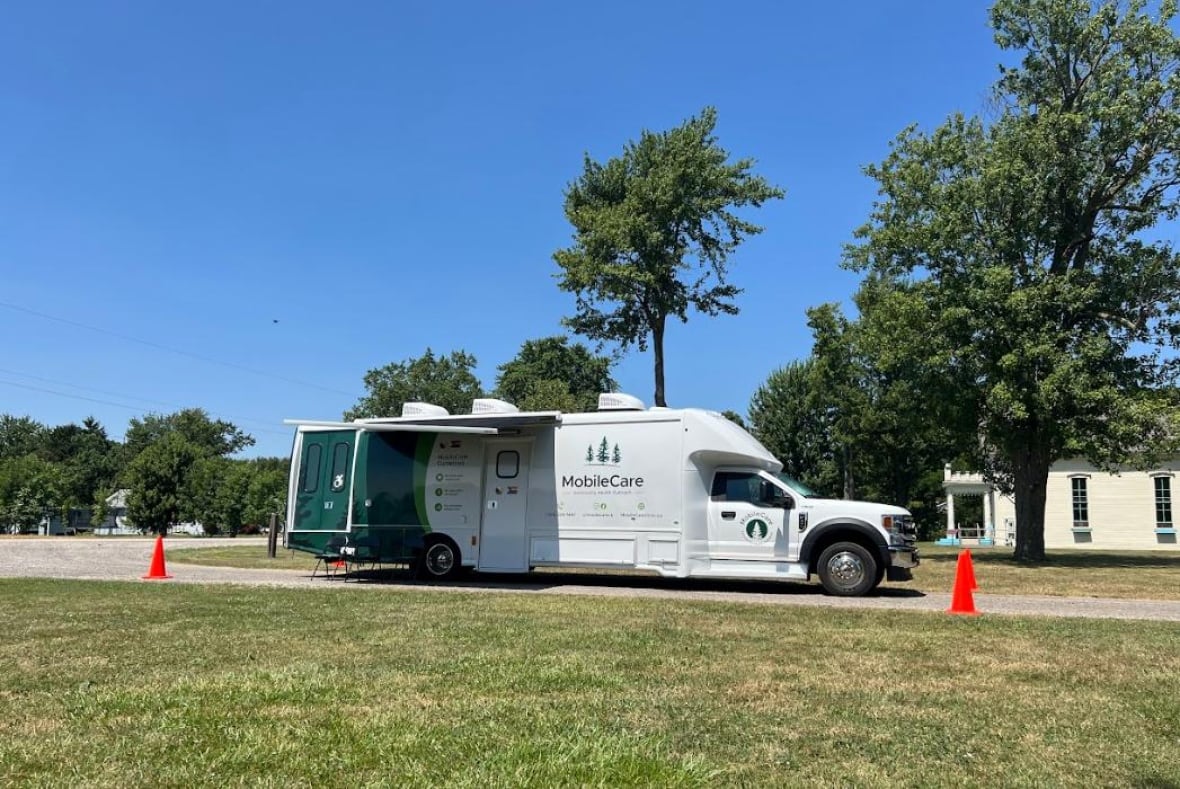
The service, aptly named the MobileCare Clinic, recently expanded its schedule to stop throughout rural areas in Chatham-Kent, Ont., based on a needs assessment from local hospitals and 911 calls. It's run primarily through the Canadian Mental Health Association (CMHA) and other community partners.
"Our hope is that we are able to address some of the social determinants of health," says Andria Appeldorn, the director of fund development and communications with CMHA Lambton-Kent. She has seen the project manifest from its origin during the pandemic.
"We really consider obstacles to care. It could be transportation, it could be reticence to walk into a doctor's office ... thinking about international workers who come into our communities, we're here to serve them as well."
On a recent Monday afternoon, the van is at one of its regular stops in North Buxton, a small rural community that was established by escaped African-American enslaved people in the mid-1800s.
According to Edna Cornwall Shadd, the staff mental health care coordinator onsite that day, the population is older and might face specific challenges to getting medical or mental health attention.
"As a Black woman, it was very important for me to ensure that the communities I identify with were having this type of support available to them, especially in North Buxton," she said.
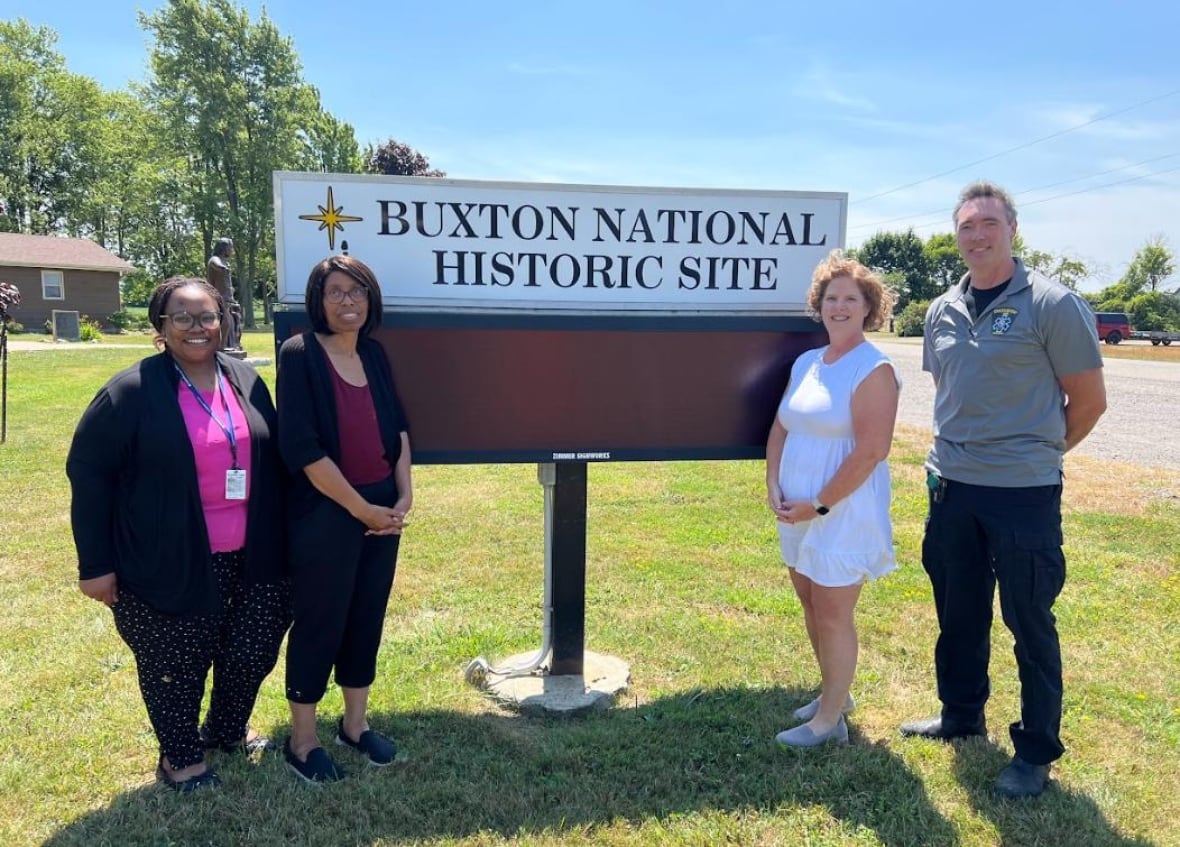
Cornwall Shadd says it's a primary objective of MobileCare to solidify relationships over time, especially when a new community is added to the van's schedule. One recent addition as part of the expansion is Wheatley, Ont.
"It's exciting trying to build that relationship [because] there may be some barriers that we ourselves might not even be aware of," she said. "Engagement with the community is really important."
For the first time, the MobileCare clinic will also be in North Buxton's community parade, a longstanding heritage celebration called homecoming that draws hundreds into the community. It's something Cornwall Shadd is excited about.
"North Buxton in particular is rich in Black history and it's actually quite amazing the number of people even within Chatham-Kent who aren't aware of that," Cornwall Shadd said.
"So any way we can help promote the community and that history while also ensuring the population is getting good quality health care is very important."
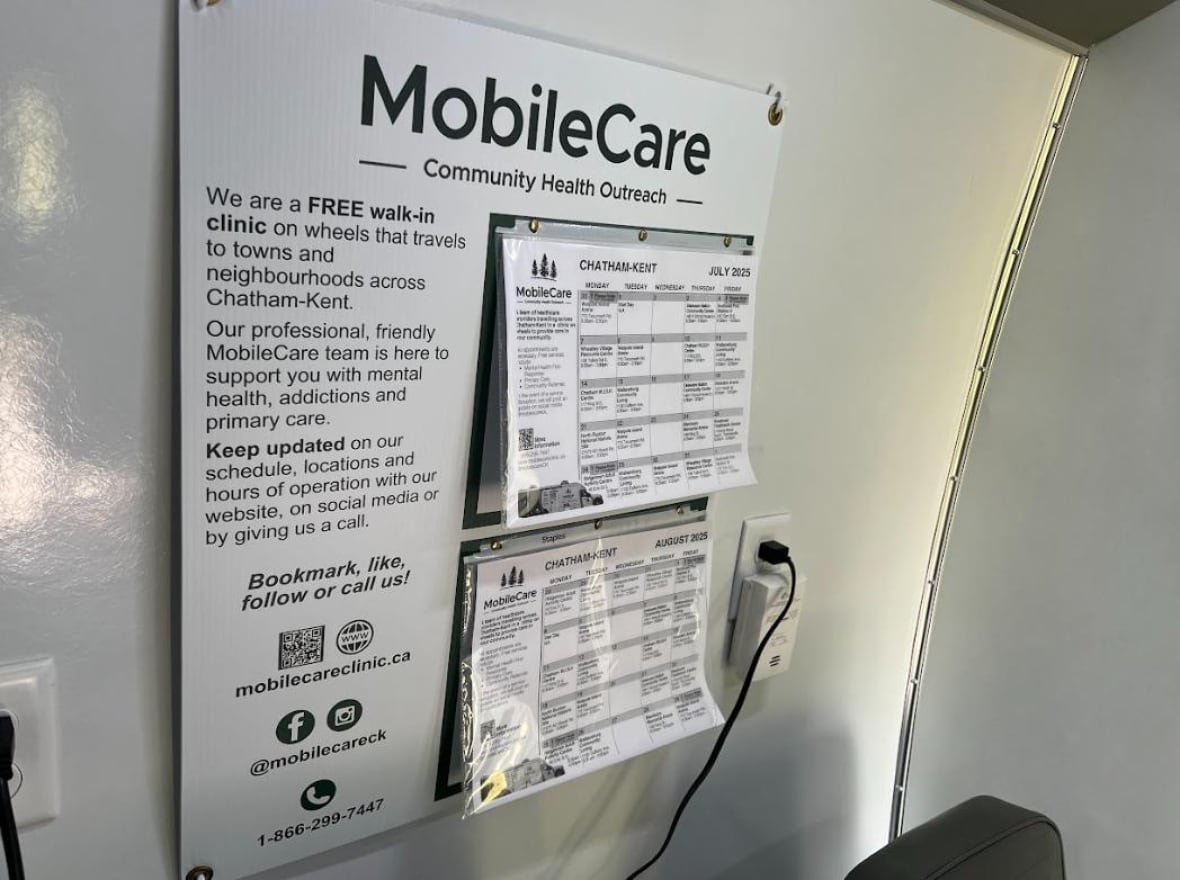
James Bromley, the CMHA's manager of integrated client services, oversees the service, which includes a second bus that services the area of Sarnia-Lambton. He says sometimes it takes a couple of visits for people to understand the breadth of what is available to them through the clinic.
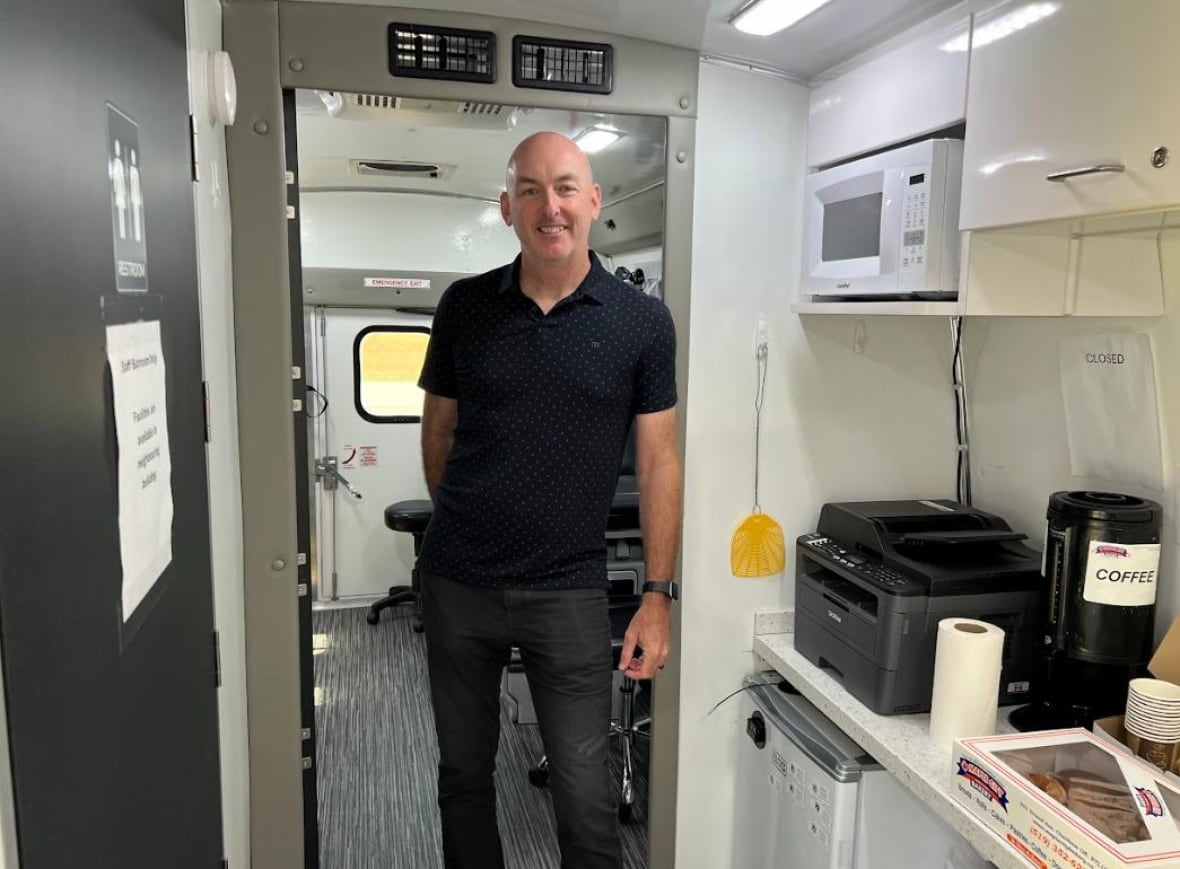
"It's a difficult time. There's long wait lists, primary care might not be available in some centres, so [we're] trying to address that, even taking some relief away from our local emergency rooms," he said.
Inside the van, three areas are sectioned off. A client is greeted by staff, triaged through an intake form and then seen by professionals. Bromley says some visits are 15 minutes, while others can be up to an hour, addressing everything from wound care to addictions. Three people can be seen at one time on-board.
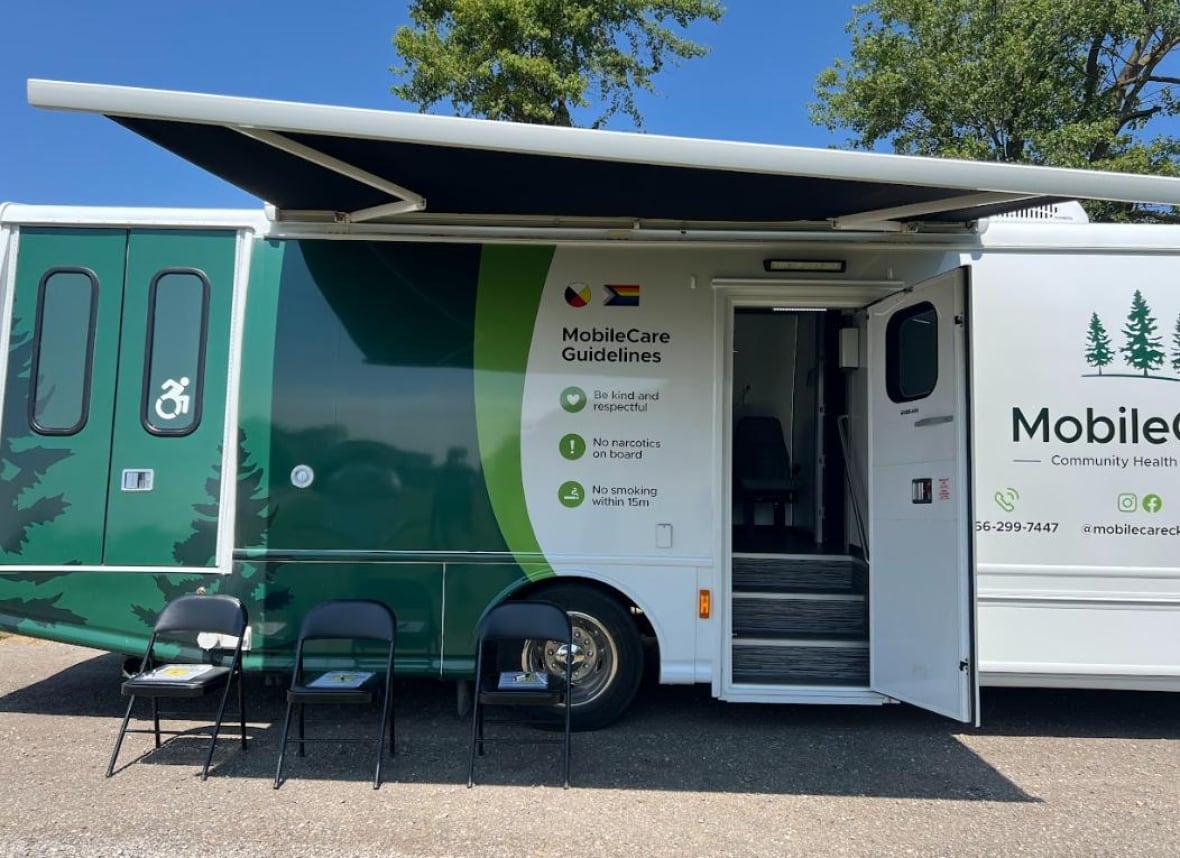
"We can offer referrals, whether for therapy, housing supports, Indigenous supports and even our community paramedic team can arrange home visits [if follow ups are required]."
Not every community has the same needs, however. Appeldorn says that the dynamic and needs can change drastically from stop to stop.
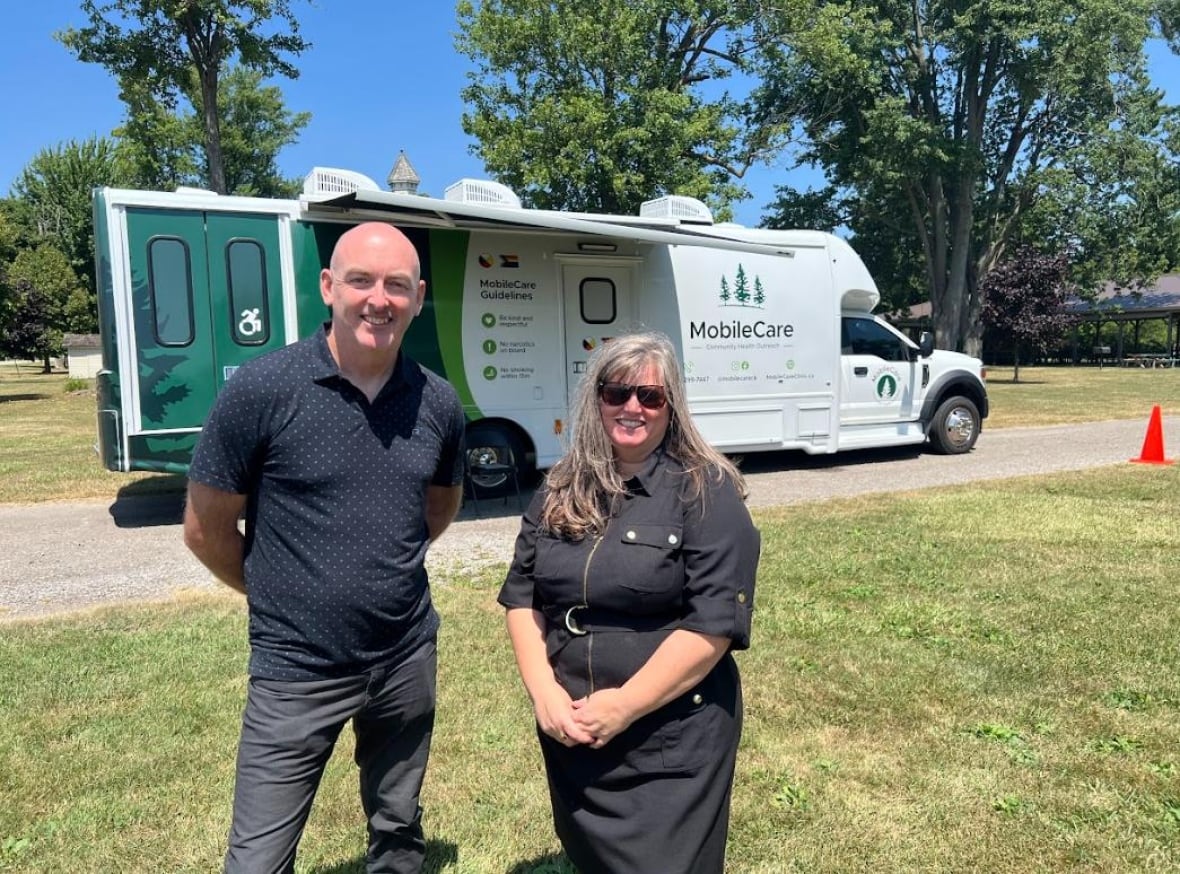
"Some communities have a lot of seasonal agricultural workers who don't have time to see a family doctor, others have elderly residents who haven't seen a doctor in years. We can really catch things before they become too advanced to be cared for."
Other stops on the van's schedule include Walpole Island First Nation, where an Indigenous services team member is added. In urban centres like Chatham, the team includes housing and homelessness support.
MobileCare operates year-round. The van's schedule is available on their website. Services are free with no appointment required.
cbc.ca





